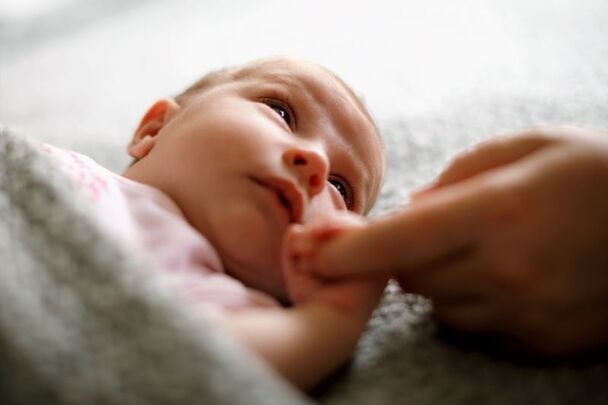Ireland’s birth rate has dropped by 20% over the past 11 years, while the rate of potentially dangerous ectopic pregnancies has increased, a new study of the country’s maternity services has found.
The HSE has published the national report, measuring clinical activities and trends in each of the country’s 19 maternity units.
These include more first-time mothers, more older mothers, and fewer twins.
Dr Cliona Murphy, clinical director of the HSE’s National Women’s and Infants Health Programme (NWIHP), said the data will help to improve the quality and safety of maternity care, by tracking performance metrics across all hospitals.
‘The metrics include obstetric emergencies and complications, neonatal care, hospital activities, infant feeding and demographics,’ she said.
The report said there have been falling numbers of births and women giving birth over the past 11 years, a drop of over 20% or an annual rate of decline of 2.1%.
It noted the number of new mothers has increased from 38.7% in 2014 to 42.4% in 2024, while the proportion of women who have given birth previously has fallen from 61.3% in 2014 to 57.6% in 2024.
The report stated: ‘These are important demographic trends, reflecting the increasing population in Ireland and smaller family sizes, with socio-political implications for policy-making around healthcare services, family services, childcare, schools and so on.’
It said the trend had important implications for maternity services. First-time mothers generally have longer labour times and have higher risks for many obstetric complications.
With a higher proportion of these mothers giving birth in the four larger maternity hospitals, this will be relevant for resourcing and staffing, the report said. It also noted that about one in every 61 deliveries results in a multiple birth in Ireland.
These downward trends are attributed to changes in clinical practice, such as single-embryo transfers in IVF, which reduce the risk of high multiples of babies.
The report drew on data from the Central Statistics Office (CSO), which found that women giving birth are on average getting older – the average age of women giving birth in 2022 was 33.2 years, an increase of 3.8% since 2012. Ireland has one of the oldest maternal ages in the EU, behind Italy and Spain.
Studies have shown that advancing maternal age is related to higher risks in obstetrical and neonatal outcomes, including ectopic pregnancy, spontaneous abortion, foetal chromosomal abnormalities, congenital anomalies, gestational diabetes, pre-eclampsia and Caesarean delivery.
The report also found the rate of ectopic pregnancies has increased from 11.9 per 1,000 women to 18.9 over the past 11 years.
An ectopic pregnancy is when a fertilised egg implants itself outside of the womb, usually in one of the fallopian tubes. Ectopic pregnancy ruptures were a leading cause of maternal mortality within the first trimester of pregnancy, the report said, and are responsible for between 5 and 10% of all pregnancy-related deaths.
It stated that risk factors for an ectopic pregnancy include smoking, pelvic inflammatory disease, endometriosis and previous abdominal surgery.
However, it continued: ‘Although the rate of ectopic pregnancies has increased over the 11-year period of this report, the fatality rate associated with them has decreased due to earlier diagnosis and treatment.
‘The increase in the overall rate of ectopic pregnancies may also reflect better case ascertainment and developments in Early Pregnancy Assessment Units (EPAU).’
* This article was originally published on EveryMum.ie.




Comments